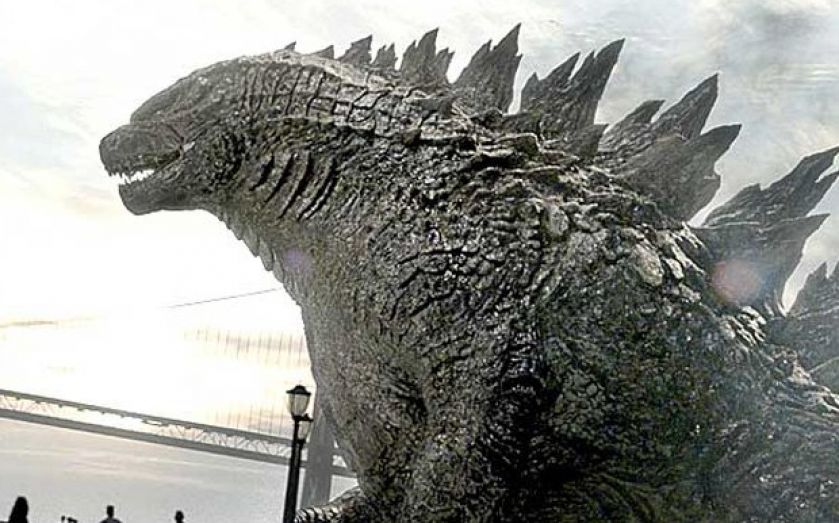Don’t misunderstand business beasts: Like Godzilla they’re on our side

IT LOOKS like the monster showdown of the year. I’m not talking about the sadly limited charms of the new Godzilla movie, but the public clash between the state-sanctioned might of Westminster’s MPs and corporate behemoth Pfizer over its takeover bid for Astrazeneca. Yet the monstrous truth is that while the latest kaiju film with its plus-sized lizard king makes for underwhelming popcorn fodder, it shows every sign of being smarter than the commons select committee that quizzed Pfizer boss Ian Read this week.
Godzilla, after all, is a story about the limits of knowledge and the perils of unforeseen consequences. Secret attempts to destroy a supposed monster in the past under the cover of nuclear tests have blown back with a vengeance. Its central message is a call to humility (and to get out of the way, stat, whenever giant radioactive mutants start brawling). We got nothing of the kind from the Whitehall knockabout, just politicians preening for the small screen, taking little consideration for the impact on Britain’s status as an open economy as they presumed to judge the logic of a transnational pharma deal.
Godzilla has always been a great big metaphor wrapped in a foam rubber suit. Its original incarnation in 1954 was a roaring symbol for Japan’s terror of nuclear weapons in the wake of Hiroshima. The latest take is apparently supposed to evoke memories of the tsunami-triggered disaster at the Fukushima nuclear power plant in 2011.
But the skyscraper-sized dino can also help us see our overblown antagonism to big business. After all, Godzilla has long been an equivocal beast. What seems too big and destructive to be on humanity’s side often finds itself, as in the latest film, battling dangerous evils on mankind’s behalf.
This week the select committee wanted to cast itself as the force restoring balance to the British marketplace. But the truth is, business is already on our side – not because political horsetrading sometimes pins it down to pay a bit more tax, but because its daily work is to serve our needs.
Both Pfizer and Astrazeneca are in the business of saving lives and alleviating human suffering. They do so not because a bureaucrat decreed that they serve the common good, but because they and their investors can make money in the process. That doesn’t taint the achievement, it motivates and grounds it with the possibility of failure.
Godzilla leaves a trail of destruction, but it is the cost of foolish and arrogant decisions taken by politicians insulated from their mistakes. Human pride is the real terror of the deep.
Businessmen are not immune from pride and folly, but unlike populist politicians the market shapes their actions toward virtue. Hugh of St Victor, a twelfth-century theologian, wrote that commerce “reconciles nations, calms wars, strengthens peace, and commutes the private good of individuals into the common benefit of all.” What can seem a world-shaking monster is, on closer inspection, an agent of hope.
Marc Sidwell is managing editor at City A.M.